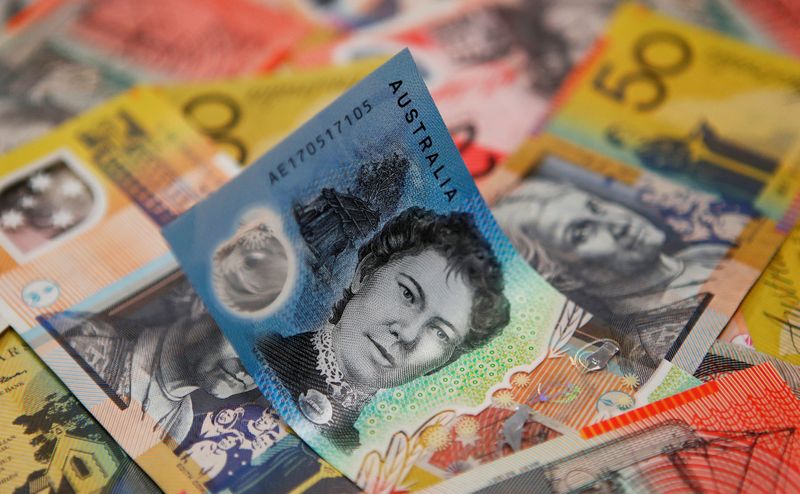By Karen Brettell
NEW YORK (Reuters) – The safe-haven dollar bounced on Monday while commodity sensitive currencies including the Australian dollar tumbled after a new batch of disappointing Chinese data bolstered global recession worries.
Chinese industrial output, retail sales and fixed-asset investment all fell short of analyst estimates in data published on Monday, as a nascent recovery from draconian COVID-19 lockdowns faltered.
“Bad data from China also weighs on recession worries for the rest of the world,” said Ipek Ozkardeskaya, market strategist at Swissquote. That pushed down the euro against the greenback, she added.
The U.S. dollar index gained 0.45% to 106.15. The euro eased 0.55% against the dollar to $1.0200.
The Australian dollar, which is sensitive to commodity prices and viewed as a proxy for global growth, dropped 1.37% to $0.7022.
The offshore yuan hit 6.7904, the weakest since Aug. 2, after China’s central bank cut key lending rates in a surprise move to revive demand.
The dollar index has fallen from a 20-year high of 109.29 on July 14 on hopes that the Federal Reserve will slow its aggressive pace of rate increases and that the worst of inflation increases may be behind us.
Concerns that the Fed tightening will send the economy into recession has also helped to send U.S. Treasury yields lower.
However, Fed officials have maintained a hawkish tone and stressed that it is too soon to declare victory on inflation.
“The Fed is telling us they want to tighten financial conditions and the market has eased them, so the Fed is going to have to drive home its point with a larger rate hike,” said Marc Chandler, chief market strategist at Bannockburn Global Forex in New York, adding that he expects the U.S. central bank to raise rates by 75 basis points at its September meeting.
Data this week including industrial production on Tuesday and retail sales on Wednesday could also “help ease fears that the U.S. contracted again,” Chandler said, which would boost the greenback.
A New York state manufacturing survey on Monday showed a sharp decline in activity in August.


